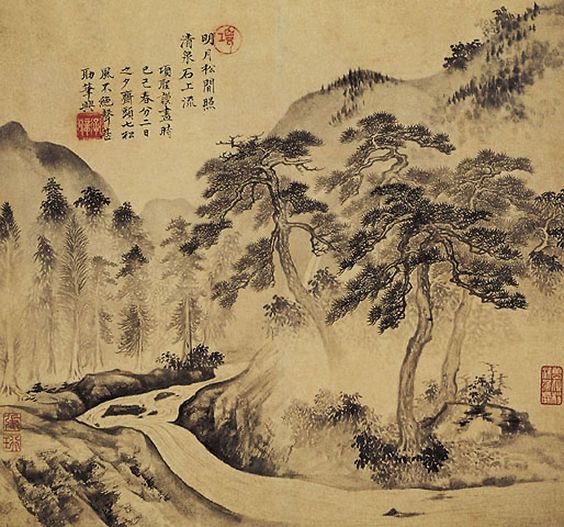While fading light falls on the land
As the cattle and sheep trail down the country lane
An old man stands at the door of his thatched cottage
Leaning on a staff with thoughts of his son, the herd-boy, thinking
Of fluttering pheasants amongst sheaves of wheat
Of silk worms asleep, among half-eaten mulberry leaves
Of farmers returning with hoes hoisted on shoulders
Exchanging words of hello
Oh, how I long for the simple life
And sigh, as I sing the old song,
Oh, to be young again!
Wang Wei spent much of his adult life in seclusion. For a period of time he retreated retreat to the mountains, just south of the Tang capital, Chang-an. The Wei River that he writes about here was was one of the early cradles of Chinese civilization, a tributary of the Yellow River, an obvious play on Chinese characters for the poet.
Wang Wei was well known for his shanshui, or mountains and rivers, poetry and his poems were often written to be presented with his art work.
The title, 渭 川 田 家, literally, Wei River farm house.
…
The penultimate line, 悵 然 吟 式 微, a play on word for Wang Wei’s capture in the capital Chang’an by the An Shi rebels. The first two characters, literally respectfully correct, by a homophone for Chang’an, the capital city that the rebels captured.
The last two charcters, 式微, shì wēi, the poetry of Wei or, to decline, again a play on word, which describes his trouble with the imperial court.
The conclusion, 又作至, literally, to do it again.












